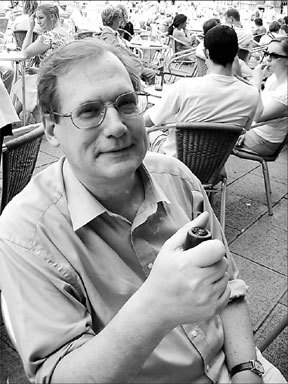

Queer Places:
Eton College, Windsor, Windsor and Maidenhead SL4 6DW
University of Oxford, Oxford, Oxfordshire OX1 3PA
 Alfred Duggan (1903 –
April, 1964) was an English historian and archaeologist, and a well-known historical novelist in the 1950s. His novels are known for meticulous historical research.
He was a member of the
Hypocrites' Club. Alfred Duggan
joined the club to continue to drink after the pubs and bars had closed. He
introduced Anthony Powell to the Club during Powell's first week in residence;
while Powell was hardly able to finish a pint of the club's potent dark beer,
Duggan drank a tankard of burgundy, his usual lunch-time tipple. Duggan was in
his second year at Balliol College and was the son of an alcoholic, on the way
to becoming one himself.
Alfred Duggan (1903 –
April, 1964) was an English historian and archaeologist, and a well-known historical novelist in the 1950s. His novels are known for meticulous historical research.
He was a member of the
Hypocrites' Club. Alfred Duggan
joined the club to continue to drink after the pubs and bars had closed. He
introduced Anthony Powell to the Club during Powell's first week in residence;
while Powell was hardly able to finish a pint of the club's potent dark beer,
Duggan drank a tankard of burgundy, his usual lunch-time tipple. Duggan was in
his second year at Balliol College and was the son of an alcoholic, on the way
to becoming one himself.
Though brought up in Britain, he was born Alfredo León Duggan in Lomas de Zamora, Buenos Aires, Argentina, to a family of wealthy landowners of Irish descent. His family moved to Britain when he was two years old. His father Alfredo Huberto Duggan, a first generation Irish Argentinian, was appointed in 1905 to the Argentine Legation in London, and died in 1915. In 1917, his mother, the Alabama-born Grace Elvira Hinds, daughter of the U.S. Consul General in Rio de Janeiro, became the second wife of Lord Curzon, the former Viceroy of India. Duggan and his brother Hubert (1904–1943) were brought up in Britain at Curzon's seats, and were educated first at Wixenford[1] and Eton. Thereafter Alfred went to Balliol College at Oxford, where he became acquainted with Anthony Powell and Evelyn Waugh.[2] He often features in Waugh's letters and diaries of the period, and his South American background may have influenced the character of Anthony Blanche in Brideshead Revisited, though Waugh described the character as "2/3 Brian [Howard] and 1/3 Harold Acton. People think it was all Harold, who is a much sweeter and saner man [than Howard]."[3] Alfred Duggan kept a car while at Oxford, one of the few students with sufficient funding and influence to do so; the University Statutes prohibited undergraduate members of the University from keeping a car within a certain distance of the town centre at Carfax, and so Duggan kept his vehicle, an early Rolls-Royce, just outside the limit of the jurisdiction of the University Proctors, and would regularly drive himself and his friends to and from London during the social season.[4] During 1938–1941, Duggan served with the London Irish Rifles, with active service in the Norwegian Campaign. For the rest of the Second World War he worked in an aeroplane factory. In 1953, Duggan married Laura Hill, and they went to live in Ross-on-Wye, where he died in April 1964.[5] According to a review by John Derbyshire, Duggan "in later years, his inheritance gone... adjusted philosophically to his changed circumstances, living a bookish and domestic life utterly at odds with the extravagant dissipation of his youth. He seems to have been a devoted husband and parent, and a loyal friend."[6]
My published books: